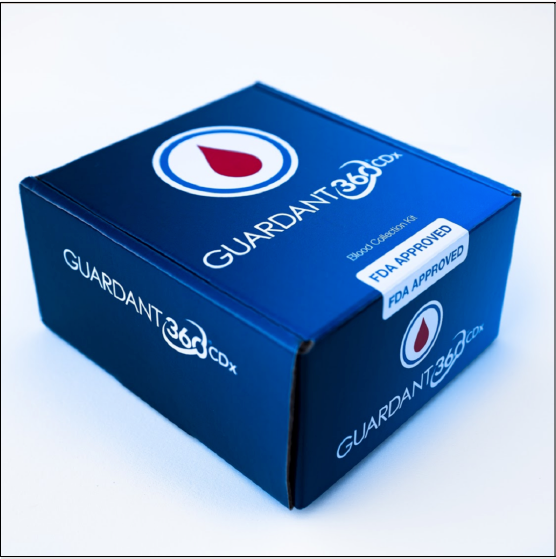Guardant360 CDx – P200010/S001
This is a brief overview of information related to FDA’s approval to market this product. See the links below to the Summary of Safety and Effectiveness Data (SSED) and product labeling for more complete information on this product, its indications for use, and the basis for FDA’s approval.
Product Name: Guardant360 CDx
PMA Applicant: Guardant Health, Inc.
Address: 505 Penobscot Drive Redwood City, CA 94063 USA
Approval Date: May 21, 2021
Approval Letter: Approval Order
What is it?
Guardant360 CDx is a laboratory test that detects genetic mutations found in circulating cell-free DNA (cfDNA) to help doctors identify patients with non-small cell lung cancer who may benefit from specific FDA-approved treatments.
This approval expands the indications for use of the Guardant360 CDx test to include NSCLC patients with EGFR exon 20 insertion mutations in plasma who may benefit from treatment with RYBREVANTTM (amivantamab-vmjw).
How does it work?
A patient’s blood sample is sent to a laboratory for testing. The blood is spun to separate the blood cells from the plasma portion. The cfDNA is isolated from a patient’s plasma sample and mixed with chemical substances, called reagents, that find and test the DNA sequences. A medical professional reviews the results and sends a report to the patient’s doctor. The doctor uses this information to help manage the care of patients with the non-small cell lung cancer.
When is it used?
Guardant360 CDx is used to test the blood of patients with non-small cell lung cancer.
What will it accomplish?
Test results from the Guardant360 CDx are used to help doctors decide if patients with non-small cell lung cancer are eligible for treatment with RYBREVANTTM (amivantamab-vmjw). The test also gives doctors more information about cancer-related gene mutations for a specific patient, which can help plan treatment.
When should it not be used?
There are no known reasons not to use this test.

